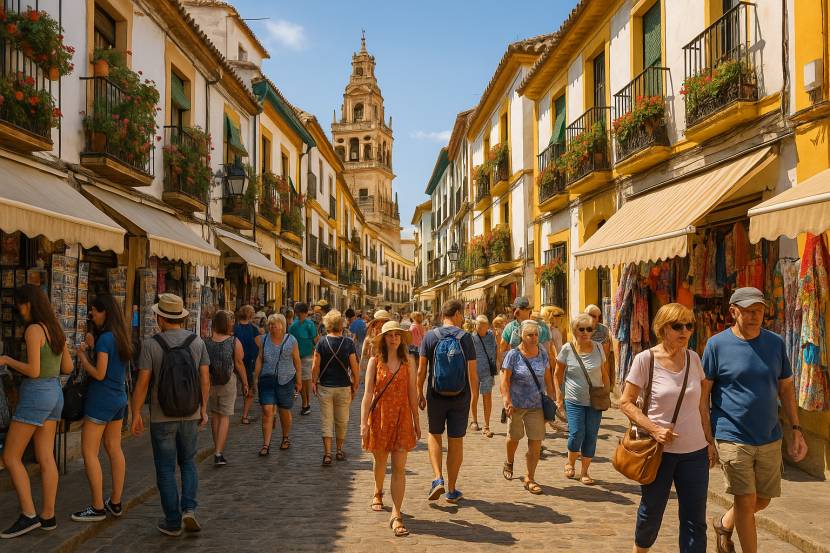Published on
October 4, 2025

As Spain braces for the influx of holidaymakers this autumn and winter, a series of updated regulations and more strictly enforced long-standing rules are making headlines. These changes are aimed at managing the growing number of tourists and ensuring smoother, more respectful interactions between visitors and locals. Holidaymakers planning to visit popular destinations in Spain should familiarize themselves with these new rules to avoid fines and disruptions.
Understanding New Restrictions for Tourists
In recent years, Spain’s most visited regions have seen a rise in disruptive behavior from tourists, leading authorities to step up enforcement of certain regulations. While many of these rules have been in place for some time, the heightened vigilance this year comes after a summer marked by multiple incidents. Tourists should be aware that fines are being issued for breaking these regulations, ranging from €1,000 to €6,000 depending on the severity of the offense.
What Tourists Can Expect in Popular Spanish Regions
The Balearic Islands and Catalonia, two of Spain’s most visited regions, have introduced various rules that impact tourists. These regulations cover everything from dress codes to limits on alcohol consumption and new tourist taxes. The new approach is designed to preserve local culture and maintain a balance between tourism and the needs of the local population.
Alcohol Consumption Restrictions: Aimed at Curbing Excess
One of the most talked-about changes is the restriction on all-inclusive drinks in places like Magaluf, Playa de Palma, and Ibiza. Introduced in 2019, this regulation limits all-inclusive guests to six alcoholic drinks per day. These drinks are split evenly between lunch and dinner, and additional alcohol cannot be ordered outside these times. The restriction also applies to the infamous “two-for-one” drink deals, pub crawls, and party boats in designated zones. Authorities have emphasized that these restrictions are strictly enforced and have already imposed fines this year.
Tourist Taxes: Financial Impact for Holidaymakers
Alongside the alcohol limitations, tourists in certain regions of Spain will notice the introduction of a tourist tax. These taxes, which are collected by local hotels, vary depending on the type of accommodation and season. For instance, in the Balearic Islands, a four-star hotel in Mallorca will see guests paying €3.30 per night, while more budget-friendly hostels and campsites may have a lower tax rate. This is part of an ongoing effort to support the infrastructure and environment impacted by mass tourism.
Dress Codes and Conduct: A Step Towards Respectful Tourism
Another regulation that may surprise visitors is the enforcement of dress codes in popular tourist areas. In cities like Barcelona and Mallorca, tourists are prohibited from walking around in swimwear or going shirtless away from the seafront. Those who break this rule could face fines of up to €300. Restaurants in certain areas have also imposed dress codes, banning football shirts, novelty costumes, and swimwear, especially in places frequented by British tourists. These measures aim to maintain the aesthetic of these regions and promote respectful tourism.
The Need for Respectful Tourism: Why These Changes Matter
Local authorities in Spain stress that these regulations are not designed to hinder tourism but to foster respectful, positive experiences for both visitors and residents. With the ongoing growth of international travel, especially from the UK, it is vital for tourists to consider how their behavior impacts the local environment and culture. Through these measures, Spain hopes to promote a more sustainable and balanced approach to tourism, ensuring that both residents and visitors can coexist harmoniously.
How Travelers Should Prepare for Their Trips
Before embarking on a Spanish getaway, tourists should ensure they are fully aware of the latest regulations, as well as any specific local rules that might apply to their destination. Many tour operators are already required to inform travelers of these restrictions, so it’s essential to check the details when booking your trip. This awareness will help avoid unexpected fines or disruptions during your holiday.
Responsible Travel in Spain
Spain remains one of the top destinations for tourists, offering stunning beaches, rich culture, and vibrant nightlife. However, the increasing number of travelers has necessitated a stricter approach to regulation enforcement. By familiarizing themselves with these rules and respecting the local culture, tourists can ensure that their holiday remains enjoyable while contributing to a more responsible and sustainable tourism industry.
Image Source: AI
